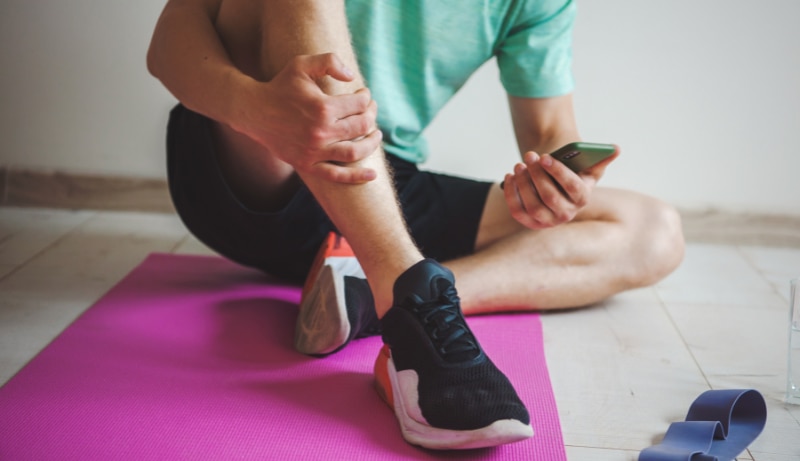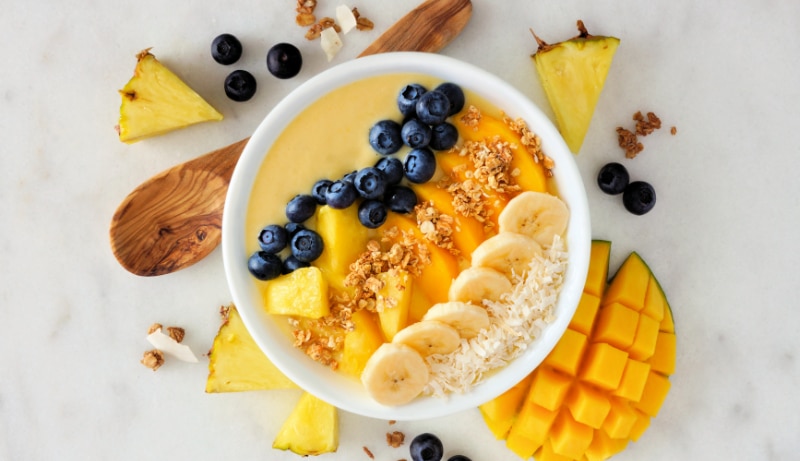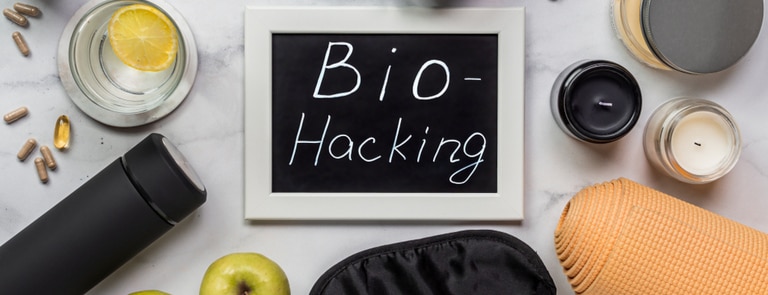20% off £30
Five ways to improve health and wellbeing

Staying in good health is important to all of us. The best way to do so is by learning how to keep physically and mentally fit.
While there are no big secrets, there are many health and wellbeing concepts that suggest ways to keep your mind and body in good shape.
It can often be difficult to find the motivation, the time or the energy to make the changes we need to improve our overall wellbeing. However, making the effort to change bad habits and create new ones can see big benefits to your health.
The following information outlines the ways you can improve your own health & wellbeing. You can also find relevant dietary information, including what to incorporate in your diet and the nutrients required to maintain a healthier lifestyle.
Summary:
- Health and wellbeing is important to all of us. The biggest lesson to learn is what works best for you to keep physically and mentally fit.
- If you are feeling stressed, see our ‘stress symptoms and how to manage them’
What is health and wellbeing?
Ideas about health and wellbeing can vary between time and different cultures, but to put it simply, health and wellness can be described as the achievement and maintenance of your physical fitness and mental stability.
But there is no short answer. What you feel, your goals, your ambitions and personality can be completely different to somebody else’s.


Health and wellness is about feeling good and functioning well. It’s a state of physical, mental and social wellbeing, not just the absence of disease or affliction.
Summary:
- There is no straightforward meaning to health and wellbeing, but it can be described as the achievement and maintenance of your physical fitness and mental stability.
- Health wellness is not just absence of disease or affliction, but a state of physical, mental and social being.
Why is health and wellbeing important?
Feelings of good wellbeing are fundamental to your overall health. Wellbeing allows us to overcome difficulties and achieve our goals.
Wellbeing is important because it can:
- Add years to your life
- Improve recovery from illness
- Influence the wellbeing and mental health of those close to us
- Stimulate positive health behaviours in adults and children


Summary:
- Feelings of good wellbeing are fundamental to your overall health.
- Good wellbeing allows us to overcome our difficulties and achieve our goals.
- Wellbeing is important because it can; add years to your life. Improve recovering from illness and stimulate positive health behaviours in adults and children.
Five ways to improve your health and wellbeing
The below information will provide the five ways of wellbeing that will help you on your journey to good health and wellness.1
1. Connect
Good relationships are important. Positive interaction can build a sense of belonging and self-worth. Building strong and close relationships allow you to share experiences, provide emotional support for yourself and others, and help you feel valued by sharing your thoughts and feelings.
Feeling close to and valued by other people is a fundamental human need. Social relationships are critical for wellbeing and act as a good defence against mental health for people of all ages.
With this in mind, here is a few things you could try:
- Take time each day to spend with your family. For example, eat dinner at a set time each day.
- Try not to spend too much time watching TV. Interact with the family, play a game together or organise a fun activity with friends.
- Arrange to meet or speak with a family member, friend or colleague that you’ve not seen in a while who may need your time or support.
- Consider volunteering. Contact local your local hospital, schools or community groups and offer your services.
- Make the most of technology to stay in touch with friends and family. Video chat apps such as, FaceTime or Skype can be useful tools, particularly if you’re living apart or spending a lot of time at home.


Try not to spend too much time on social media. It’s easy to fall into a habit of texting, messaging or emailing people – the important thing is to interact and talk to people.
Summary:
- Connection is important - take time out to see friends and family.
- Social relationships act as a good defence against mental health for people of all ages.
- Try not to just spend time on social media. Arrange to meet people face to face or over electronically.
2. Get active
Being active is great for physical health and fitness, and it also helps improve wellbeing.
It’s important to understand that your mind and body work as one. What you do with your body can have a powerful impact on your mental wellness. Mental wellbeing means feeling good, not only about yourself but also the world around you.
Physical activity improves self-esteem, helping you to achieve goals or challenges you set yourself. This doesn’t mean that you need to spend hours in the gym. Slower paced activities, such as walking can provide a good level of exercise which can lift your mood.
Whether you have five minutes or an hour, set aside time that you allow yourself to be active.
It’s important to find something you enjoy, you could try:
- Running or walking, there are a number of free apps you can use to track your improvement.
- Look into activities like swimming, cycling or dancing. There are many classes or exercise you can explore, have a think what you might like to get involved in and do some research of where to find them.
- If you have a disability or a long-term health condition, there are a number of leisure centres or organisations that are equipped to help you.


The important thing is to remember to enjoy what you’re doing. You don’t have to spend hours in the gym if that isn’t for you. See our ‘seven activities to help your wellbeing’ article.
Summary:
- Being active is not only good for physical fitness, but it also helps mental wellness.
- Physical activity improves self-esteem. Setting yourself goals and completing challenges is great way to improve wellbeing.
- It doesn’t matter if its five minutes or an hour, taking time out to be active is a great way of improving your mood.
3. Learn new skills
Learning new life skills is a great way to improve health and wellbeing. Continued learning encourages social interaction and a more active life.
Finding ways to engage in work or educational activities is associated with health wellness. This doesn’t have to mean getting a qualification or completing a course. Setting yourself a goal or giving yourself a purpose is proven to improve wellbeing.
Learning new skills such as cooking or baking can lift self-confidence, other ideas include:
- Take on a new hobby, such as writing a blog, taking up a new sport or learning to paint.
- Read more. Pick up a book or magazine, maybe try completing a puzzle or crossword to get the brain working.
- Work on a DIY project. Use online video tutorials to teach yourself how to work on or fix something at home.
- Ask to take on new responsibilities at work.


It’s important not to put too much pressure on yourself. Learning isn’t just about completing qualifications, it’s about finding what suits you and getting enjoyment out of it.
Summary:
- Learning a new skill is a great way to improve health and wellbeing. It improves social interaction and helps to cultivate a more active life.
- Setting yourself a goal or giving yourself a purpose is proven to improve wellbeing.
4. Give to others
Small, or even large acts of kindness and giving to others often brings good wellbeing. While giving to others is inherently good, it can also make you feel happier and satisfied about life.
Helping and supporting others and working towards a shared goal is good for wellbeing. Participating in social and community life once a week over a six-week period is associated with an increase in wellbeing.
Some examples of ways to give include:
- Ask family, friends or colleagues how they are and really pay attention to the answer.
- Spend time with friends or relatives that need your support.
- Offer to help. The smallest of things, like cooking a meal, cleaning or gardening can mean a lot to somebody.
- Volunteer in the local community. Offer your services to a school, hospital or care home.


Summary:
- Helping and supporting others and working towards a shared goal is good for wellbeing.
- Participating in social and community life once a week over a six-week period is associated with an increase in wellbeing.
5. Pay attention
Mindfulness is a good way of improving your mental wellbeing. Paying more attention to the present moment, your thoughts and feelings, your body and the world around you can bring positive changes to the way you feel about life.
It’s easy to rush through life without stopping to take notice. But what we do and how we think have a huge impact on good wellbeing.
Better ways to take notice include:
- Trying yoga or meditation. The relaxation and concentration on breathing are known to help invoke senses.
- Relax to music. Listening to music and lyrics allows you to take in what’s you?
- Visit a park or the countryside
Being mindful about the world around us and being more aware of sights, smells, sounds and tastes you experience allows you to understand the world and yourself a lot better.
Summary:
- Mindfulness is important for mental wellbeing. Your thoughts and feelings, your body and the world around you can bring positive changes to the way you feel about life.
- How we think and what we do have an impact on our wellbeing.
Try relaxation techniques such as yoga, meditation or music to engage with the world around you.
Other ways to look after your health and wellbeing
Health wellness is something that affects us all. This doesn’t necessarily mean that you are not able to function, but it could mean that there are areas of your mental or physical health that you might want to give attention.
Signs of poor health and wellbeing:
- Poor concentration
- Being easily distracted
- Worrying more Indecisiveness
- Low mood
- Feeling less interested in day-to-day activities
Concentrating on your health
Eating a healthy, well-balanced diet is an essential part of maintaining good health and wellness.
This means eating a variety of foods in healthy proportions. It’s important to consume the right amount of food and drink in order to achieve a healthy mind and body.
Are you getting your 5-a-day?
We’re all familiar with the concept of 5-a-day, but how do we know that we are eating the recommended amount of fruit and veg?
Fruit and vegetables are good source of vitamins, minerals and fibre, and should make up just over a third of your daily food intake. The NHS recommends that you eat at least five portions of fruit and vegetables per day – they can be fresh, frozen, canned or juiced, the important thing is to try and include them into your diet.
Five portions is not as overwhelming as it sounds. A portion can be2:
- 80g of fresh, canned or frozen fruit and veg.
- 30g of dried fruit, which should be kept to mealtimes.
- 150ml glass of fruit juice or smoothie, however it’s advised that you do not have more than one portion as these drinks can be very sugary.
A piece of fruit such as an apple, banana, pear or similar sized fruit is classed as one portion. As is a slice of pineapple or melon, or three heaped tablespoons of vegetables.


Summary:
- Eating a healthy, well balanced diet is essential for good health and wellbeing.
- Concentrate on getting your 5 A Day. They should make up a third of your daily food intake.
- Five portions is not as daunting as it sounds. A piece of fruit such as an apple, banana or similar sized fruit is classed as one portion.
Starchy foods in your diet
Its recommended that starchy foods should make up just over a third of your diet.
For healthier options, choose wholegrain or wholemeal starchy foods:
- Brown rice
- Wholewheat pasta
- Brown, wholemeal or lighter fibre white bread
These often contain more fibre, vitamins and minerals than white alternatives. Potatoes with skins on are also a great source of nutrition.
Vitamin A is vital for the immune system, skin and eyes. The recommended daily intake of vitamin A is 0.7mg a day for men and 0.6mg a day for women.3 Find it in brightly coloured fruits and vegetables such as mango and peppers.
B vitamins are a group of vitamins that help convert our food into fuel and offer a range of benefits for the nervous system and cell function.
- Thiamin, or vitamin B1 helps break down energy from food, and is found in peas, eggs and wholegrain bread. Men need 1mg per day, and women require 0.8mg per day.
- Riboflavin, or vitamin B12 helps you make blood cells and release energy from your food. It also supports the skin, eyes and nervous system and is found in rice, eggs and fortified cereals. Men need 1.3mg per day and women need 1.1mg per day.
- Niacin, or vitamin B3 also helps energy conversion and supports the skin. Wheat flour and eggs are good sources, and men need 16.5mg per day, whilst women need 13.2mg per day.
- Vitamin B6 helps your blood carry oxygen around the body. Many different foods are rich in this vitamin, including most vegetables and wholegrain products. Men should get 1.4mg per day, and women 1.2mg.
Vitamin C is an antioxidant that helps protect your cells. Find it in broccoli, strawberries and oranges. 40mg per day is the recommended daily amount.
Needed to regulate other minerals (like calcium) in the body, Vitamin D is found in eggs and fortified food. It’s still a good idea to take a vitamin D supplement though, as dietary sources are rare. Government guidelines recommend 10mg daily unless you spend a lot of time in the sun.
Vitamin E helps support your immune system and skin. Good sources include nuts, seeds and olive oil and men need 4mg per day, women 3mg per day.















